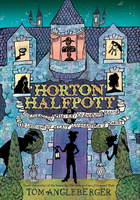One day my boss pulled me into her office. We had just seen some people on our team leave the company due to basic unhappiness, and the boss asked me for . . .my take on what was going on. Why is everybody unhappy? Why is employee morale so low? We work in a large company with great benefits and pension plans; why are these people leaving? Could it be that we hired the wrong people, or is it something that is going on here at work?
I was caught somewhat off guard by the questions, so I told my boss that I would think about it and get back to her. While sucking in fumes from other cars during my rush hour commute home, I started to note in my mind the things that my company could do to help people be happier, more motivated, and more dedicated in their jobs. The next morning, I woke up early and started to jot down those reasons. I came up with quite a long list, and before long I said to myself, “I could write a freaking book about all the things this company could do better.” So, I started to write a book.
I soon realized that the problems that existed in my company were the same problems we had at my previous workplace. After thinking about it a little further, I realized that in fact these problems were common in almost all the organizations in which I had been involved. The funny thing is that most of them weren't really problems; they were merely situations in which everyone was focused on the wrong things. Specifically, it seemed that while management's intentions were good, they still got results the opposite of those intend-ed—because management focused on the wrong things.
For example, it used to drive me nuts that managers would come in with these great, gung ho programs to get us going, but would then neglect some of the fundamental issues that really hindered their ability to lead and our desire to follow. That is like putting supreme gasoline in my old clunker truck—better gas alone is not going to help my car run better. Many other, fundamental issues need to be addressed before the high performance fuel is going to make a difference.
I assume that the reason so many managers focus on the wrong thing has to do with the fact that they are getting their information from the wrong sources. Just as many people who make decisions about marketing a product have never talked to a customer, many managers get their ideas without ever talking to their employees.
I intend to change that. Unlike most other management/self-help book on bookshelves today, this book is written by a peon. It will allow you to see the world through the eyes of an insider, rather than those of some outsider.
Some may ask, Why the word peon? Why not valued team member or synergistic contributor? The word peon originally described a certain class of people; some would say that it still does. However, I would argue that peonage is a state of mind. It is a situation in which we feel like we have no control over what is being done. We feel powerless. We are just doing what the boss tells us.
Some may feel that way at work. Others may feel powerful at work, and then become a peon when they get home. You may think that a company owner or CEO is not a peon, but if you ask those people, they'll tell you that they feel like a peon in relation to their creditors or shareholders. Because so many relationships exist in society, it is safe to say that each one of us, in some capacity or another, is a peon. Don't be afraid of it; it's not a bad thing. Embrace your inner peon. It is part of life. It is the way our societies are set up.
However, because each of us is a peon in some form or another, we can also conclude that each of us is a manager in some form or another. We are a manager in the sense that someone else likely feels they are our peon. Possibly you are a peon at work all day but then, when you get home, you are the president of your homeowners association. Maybe you make no decisions at work, but when you get home you make all the decisions for yourself and your spouse.
If peonage is a state of mind, so is Manager—the kind with a capital M. It is human nature to become a capital M manager once responsibility has been placed on one's shoulders; one has to be much more focused and aware in order to become a lowercase m manager. This book is about helping you become a lowercase m manager. Why would you want to do that? Because it will help you develop a relationship with your peons that inspires them to be happy, and happy employees are productive employees. They are employees that feel loyal to your company. They are employees that stay.
Unlike traditional boring management books, I have written this book in a funny, lighthearted way. You shouldn't fall asleep reading this book nor get to the end of a chapter and say to yourself, “Okay, now what did I just read?” It can also come across as a bit sarcastic or mean. That is intentional, because that is how we, as your employees, often feel. The sarcasm comes from frustration. You may not think that your employees feel like peons, or that you are one of those Managers; however, it still exists in people's minds. They still feel like peons.
I am not the only person who feels this way. If you really want an insight into how your employees feel, read this book. As I stated earlier, the issues I noticed in my company exist at almost all the organizations in which I have worked, from mom-and-pop to Fortune 500 companies. Chances are, if one of your peons accidentally picked up this book and started reading it, they would start saying to themselves, “Oh, yeah. My manager is like this” or “I've had a manager just like that at a previous job.” All organizations have a Management-peon structure in place. I'm giving you the chance to make it, instead, a peon-management relationship. Take advantage of it.
Acknowledgments
I'd like to first thank Drex and Quin for giving me the confidence to do this, and for setting a powerful example of walking the talk when it comes to following your dreams. You are both brass elephants. As Quin showed me, pursuit of your life's destiny starts with a simple choice. You both inspire us all to live the spirit of FDM.
Second, I'd like to personally thank all the staff at Berrett-Koehler Publishers for taking a chance on some no-name goofball. Steve, thanks for establishing an organization where people can make choices based on moral obligations. And Jee-van, thanks for your desire to instigate social change from the inside.
I would also like to thank God for being kind enough to bless me with talents. I only hope that He is satisfied with how I am developing them.
And last but most, I'd like to thank my beautiful wife, Lorette, and my wonderful children. You are my inspiration for everything I do. You have always helped me keep things in the right perspective and to see the world with a different eye.
Dave Haynes
Phoenix
January 2004
1
Introduction: A Change of Focus
image
Another management book? Who is this guy, Dave Haynes? I've never seen him as the keynote speaker at a lecture series, or presenting his company's year-end report to . . . . . . . . . . Wall Street. Who is he? Some Harvard professor, some expert on synergy, some business psychologist? Not exactly. In reality, not even remotely.
I am Dave Haynes, and I am a peon. I am a worker, a scrub, a subordinate. I hold no distinguished title, I don't have a special business card, and my office is a cube. I am not embarrassed by this; it is simply a fact. I have not successfully climbed any corporate ladder. I have not spent hours in a lab researching employee blood pressure levels in a work environment. I don't have time for that; I am too busy working. Too busy slaving away for some company somewhere, trying to put bread on the table and a little money in the bank. Too busy driving in rush hour traffic and preserving my remaining vacation days.
So why would I, an underqualified peon, write a book about management? And what can some underclassman tell you about managing your team? That's a very good question. Let me answer with a scenario.
Let's say you set out to train a dog. You have three options for sources on how to train that dog. The first is a training manual written by a PhD in dog psychology who has spent many hours observing dogs being trained. She tours the country giving motivational seminars on dog training and sells millions of copies of her dog-training books. The second option is an experienced dog trainer who has a proven record of training success. He once trained a dog that won top prize at the Westminster Kennel Club Dog Show, and he brought a dog from the brink of death to being a top breeder. The third choice would be the option to actually talk to the dog, to know its thoughts and wishes, to have a frank conversation with the animal about how it prefers that you train it.
Which would you rather have? I'd much rather get the information straight from the dog. How invaluable would it be for your dog to be able to tell you, “Look, Buddy, you're a nice guy and all, but the doggie biscuit thing just ain't workin'. You call that a reward? Come on. Calamari! That's what I really want; that's the key to getting me to do all those stupid tricks. You feed me calamari, and I'll dance the Macarena. Whatever you want me to do, reward me with calamari, and I'll do it.”
If calamari is indeed the key to complete obedience when training a dog, how else would you discover that than by talking to the dog itself? Only the dog would know that. The experienced dog trainer wouldn't know that, and the PhD certainly wouldn't know it, but the dog would.
Since many employees feel like they are asked to sit, beg, and roll over on a regular basis, and since many managers feel like they are taming a bunch of animals, I figure it isn't too much of a stretch to draw the comparison here between dog/trainer and peon/manager. How valuable would it be for you as a manager to be able to hear honestly—and I mean completely honestly—what your employees are thinking?
Sure the company has open door policies and employee satisfaction surveys, but you and I know such measures are like telling your neighbor “If you need any help, let me know” when you see him pull up with a new piano. You probably don't really want to help; in fact, you offer your help, knowing darn well he isn't going to ask, just because it is the right thing to do. Similarly, surveys and open door policies are not getting you accurate employee feedback.
How valuable to your success as a leader would honest, effective feedback be? How would you benefit by knowing exactly how your team evaluates your management style? Don't tell me that they are already up-front with you. If you think your relationship with your employees is that good, that they tell you everything without holding anything back, then I would tell you to go get the milk, because it's time to pour you a bowl of Reality Cereal.
Have you ever wondered what your people talk about around the watercooler, or in the restroom, or in the parking lot next to their cars? Sure, they bring up the last episode of some TV show when you are around, but the minute you leave, don't think for a minute that the conversation stays the same. Once you are gone, they are probably talking about you. Think about it: When you get around other managers, what do you talk about? You spread gossip about subordinates and you spend a lot of time talking about your own boss. We peons aren't any different.
“They talk about me?” you ask. “Really? What do they say?”
Well, first we talk about your terrible haircut, then we discuss matters of personal hygiene… Just kidding. Actually, most of the time we analyze your management skills—or lack thereof.
5
“I can't believe he wrote that e-mail. Does he not have a clue about what we are already doing?”
“Man, I don't trust her. She seems like she'd stab you in the back.”
“My manager is so cool; she took us all out to breakfast this morning.”
“Aw, man. My manager would never do that… You know him: Mr. Corporate Guy.”
Believe it. Your subordinates talk about you and analyze your management skills. It's a fact of life—and one of the great rights of being a peon. But don't get all depressed and down on yourself, thinking it's all negative. We do notice when you do something right. It's usually followed with, “Let's see how long that lasts,” but at least we notice.
So why am I telling you this? Why tell you what the peons expect? Why don't I just get back to work and leave things the way they are? For my own personal reasons, I have decided to break ranks, to be an informant, a snitch. I have seen too many good people show up day in and day out for a job that could be rewarding but isn't. And I've seen too many managers try very hard, only to find they are spinning their wheels.
In truth, I want to help those managers be more effective and more centered on their employees. I want to tell all the managers in the world what it is we peons expect them to do, how we peons expect to be treated, how it is possible to get us peons to actually work. We may be peons but you don't have to treat us that way, and frankly, we feel that you do. If you could learn how not to treat us like peons—and actually change your ways—I guarantee you would see a difference in your team's productivity, happiness, and subsequent loyalty to your company. It's really not that difficult, and my suggestions aren't going to be anything earth-shattering, but the suggestions will be brought to you from a different point of view, helping you to see management with a valuable change of focus.
One of my sisters studied biology in college. One day she and I were talking about her schooling, and she informed me that in order for rabbits to fully digest their food, they double-digest it. In other words, rabbits eat their own poop.
Another sister was privy to the conversation. Her reply to this revelation of fact about rabbit feces was, “That is so gross! I will never kiss a rabbit again!”
My response was a little different: “No way! They turn on their own diggity? I want to see that! Why do they eat their own poop? All this time I've been around rabbits and never noticed. That is amazing!”
My sister and I received the same information, but we came to completely different conclusions. Our individual focus pointed us in totally different directions regarding rabbits turning around and eating their own little pebbles. In order to learn more about a rabbit's digestive patterns, then, my sister would need to change her focus to be more like mine. In order to see the disgusting nature of this rabbit deed, I would need to change my focus to be more like hers.
7
What does a rabbit offal have to do with management? Everything! One's focus can be crucial to one's ability to interpret the world. Many managers are doing a good job, but if they changed their focus just a little bit and saw the situation from a different angle, they would turn themselves into great managers, well-loved managers, and promotion-worthy managers.
For this reason, I have put together some suggestions for managers, from the peon's perspective. Not from the perspective of some PhD or “successful” manager, but straight from the horse's—or dog's, or maybe even rabbit's—mouth. If all managers concentrated on these suggestions, their relationship with their subordinates would improve and they would be able to get more of what they want out of these subordinates.
In order to make these suggestions easier to remember, I've created a list of get statements:
Get trustworthy
Get real
Get personal
Get in the trenches
Get feedback
Get organized
Get it? I heard somewhere that our minds can remember any pattern as long as it contains less than seven items. That's why there are seven numbers in a phone number and “seven habits of highly effective people.” There are even seven wonders of the world. But I have gone one better: I am only going to make you remember six suggestions. I realize that the first letters of the second words don't make some catchy remember-all word (unless you can make something out of TRPT-FO), but I think they should still be easy to remember, even for you senior managers.
You might ask yourself if these suggestions are totally new and revolutionary. Probably not. Will they make you the greatest manager of all time? Maybe. They are simply suggestions that, if used correctly, can help you to be a great manager. They are things I have identified, through my countless appearances on the peon stage, as things that would have helped my managers to manage better. That is not to say I thought they were terrible managers, only to say that, with a little tweaking and the right focus, they could have been more effective, and they could have gotten more out of me.
I hope that by this point you have started to feel that it might benefit you to listen to what a peon has to say, that it might help you change your focus. But why should Dave Haynes tell you about improving the peon experience? Who am I to be the voice of peons? The answer is that I am a card-carrying peon, and I have been one for a long time. I am not a manager, but rather one of the managed. I look at my shoes when I walk, I work in a cube, I bring my lunch to work—I am a peon.
Perhaps peon is a politically incorrect term; I should probably call us managerial-title–challenged contributors. Since I am a peon, though, the ethics of political correctness allow me to call myself a peon. It's okay for fellow peons to refer to themselves as peons in contexts such as “What's up, peon?” or “Hey, peon. Get me a pencil” or “I am such a peon.” However, proper peon etiquette dictates that if you are not a peon, you may not go around smacking off the P-word. Management should never—ever—call us peons.
I am an expert in everything about being a peon because I have spent my whole life as a peon. As one of eight children, I was one of my parents' peons. From the age of fourteen, I have held jobs in just about every field, from mowing lawns, to sales, to marketing, to bus driving, to lifeguarding, to rabbit re-feeding. I also have worked in all kinds of organizations— mom-and-pop businesses, large public corporations, nonprofits, government agencies—and while I don't know what goes on in every department in every business in every industry, I have noticed that certain things tend to remain the same, and that the relationship between managers and employees generally needs a refocus, no matter where you go.
Like any suggestion, the power to act is in the recipient. You may read this book and say to yourself, “This is the biggest pile of tripe I've ever read,” and then run each page through the shredder. Twice. Or you may read it and say, “If I were a rabbit, I'd probably turn around and eat my feces too.” Or, if you are a good manager, you will say, “Wow! Is this really how my peons feel about me? I need to change.” In any case, it's up to you to do something.
Knowledge itself is useless; knowledge that motivates to action is wisdom.
I hope you are wiser for reading this book.















